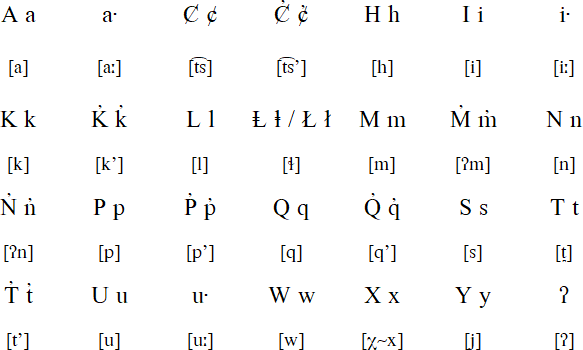Kutenai is a language isolate spoken in western Montana and northern Idaho in the USA, and in southeastern British Columbia in Canada. In 2014 there were 25 fluent speakers of Kutenai (Ktunaxa) in Canada, and 20 semi-fluent speakers. According to the 2010 census, there are about 220 speakers of Kutenai (Kootenai) in the USA. The majority of Kutenai speakers are over 50 years old. Kutenai is also known as Kootenai, Kootenay, Ktunaxa or Ksanka.
Kutenai was first documented by Philippo Canestrelli, a missionary, who published a grammar of the language (in Latin) in 1894. Other books documenting Kutenai have been published since then, including a collection of stories, The Kutenai Tales, by Franz Boas in 1918.
Since 2012 the Ktunaxa people in Canada have been working to revitalize their language. They have collected audio recordings of words, phrases, stories and songs, which are shared online and in an app. They are also working on a dictionary. Kutenai language and culture are taught in a few schools and colleges in Canada and USA

Download an alphabet chart for Kutenai (Excel)
Hear the pronunciation of Kuntenai
Taxas n̓uk̓nił huqnaniyamni. c̓inałunisnamni. Qanał łunisnamnic taxas n̓uk̓nił c̓ininmitqałxuni. Snał łunisnałkaɁni Ɂaˑqał.
Then they suddenly moved camp. They were moving along. As they were moving along, then all of a sudden the cloud started moving fast. The cloud was on the move.
Source: The Languages of Native North America
Information about Kutenai
https://en.wikipedia.org/wiki/Kutenai_language
https://fr.wikipedia.org/wiki/Kutenai
http://www.languagegeek.com/isolate/ktunaxa.html
http://www.native-languages.org/kootenai.htm
https://www.firstvoices.com/explore/FV/sections/Data/Ktunaxa/Ktunaxa/Ktunaxa
http://www.flatheadwatershed.org/cultural_history/history_people.shtml
Languages written with the Latin alphabet
Adaizan, Ainu, Basque, Burushaski, Candoshi-Shapra, Chitimacha, Eskayan, Hadza, Haida, Karuk, Kawésqar, Keres, Kuot, Kusunda, Kutenai, Natchez, Nihali, Nivkh, Páez, Purepecha, Sandawe, Seri, Sumerian, Tartessian, Ticuna, Tiwi, Tonkawa, Tunica, Urarina, Waorani, Warao, Wardaman, Washo, Yaghan, Yele, Yuchi/Euchee, Zuni
Page last modified: 23.04.21
[top]
You can support this site by Buying Me A Coffee, and if you like what you see on this page, you can use the buttons below to share it with people you know.

If you like this site and find it useful, you can support it by making a donation via PayPal or Patreon, or by contributing in other ways. Omniglot is how I make my living.
Note: all links on this site to Amazon.com, Amazon.co.uk
and Amazon.fr
are affiliate links. This means I earn a commission if you click on any of them and buy something. So by clicking on these links you can help to support this site.
[top]